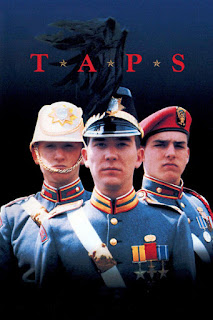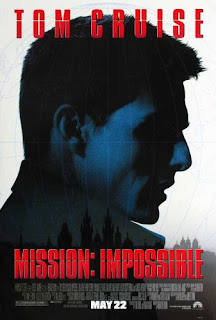Risky Business (1983)
It's a shame that Risky Business is primarily known for Tom Cruise dancing around in his underwear. That scene alone is not representative of the entire film, and yet, many people tend to judge this film as if it were another mediocre teen sex comedy from the 80s. The truth is that Risky Business is much deeper than that -- and is perhaps the most intelligent film in the genre.
This is an easy claim to make following Cruise's last film, Losin' It. This is the second of three films where Cruise losing his virginity is integral to the plot (the other being All the Right Moves), but the others' usage of sexuality isn't as intricate as the way Risky Business utilizes it. While Losin' It treats sex irreverently and All the Right Moves sees it more as a rite of passage, Risky Business draws a heavy connection between sex and capitalism. More specifically, Joel Goodsen, a wealthy and conveniently named high school senior, is left home alone for a number of days. His parents reiterate their trust in him, especially since he's working hard to get into an Ivy League school, which leads him to partake in school activities like Future Enterprisers. While alone, his friend's meddling leads Joel to spend a night with a sex worker named Lana, who pulls Joel in over his head in her world of sex work and greed.
But the conflict of the story isn't focused on the sex work, as might be expected. Rather, all the issues rotate around money and the American attitude towards wealth. Joel's inability to compensate her leads to the loss of his parents' expensive objects while his attempts to gain all that back and pay her off result in his failure at school. It's only through Lana's own craftiness that Joel finds a solution, and in the film he uses the word "capitalist" to refer to her brilliant ability to come up with ways to make money.
In the end, though, this isn't a comedy about a teenager making a mistake and fixing it. Rather, we see Joel make huge mistakes that he expects to destroy his future, and yet, it doesn't. Exploiting women's sexuality for his own personal benefit only works to secure his own success. Lana's future is much more ambiguous; it seems that she can only exist without issue if she can weaponize her own sexuality against the very men who use her.
There's also a strong undercurrent about reality and surreality that I feel goes unnoticed. The film starts with a dream that Joel presumably has had multiple times; the following sequence of events seems to line up with what he describes. Furthermore, it's difficult to decipher what's genuine about Lana, Joel's friends, and the adults in charge of his future. I think this comes to a particularly poignant moment when Lana asks Joel if he would like to "make love on a real train," which is personally one of my favorite scenes of the decade and carries with it a dreamlike ambiance set to a stupendous soundtrack by Tangerine Dream.
The point of this film can be summed up with one ending question: what did Joel really learn from all this? And perhaps, more important, what can the result of Joel's actions say about the reality of wealth, race, and gender in the United States?
Even if I believe that Cruise is remembered for the wrong reasons in this movie, I am very glad that this is the movie that made him famous to begin with. Again, his role is much different than what we're accustomed to seeing nowadays; at one point, he even states how Lana is brave and direct, a personality which is the exact opposite of his. It's refreshing to see him play against type, even if he didn't quite have a type yet in 1983, and even if his acting ability was still developing at this point in time.
Rating: 3.5/5 - January 31, 2020





Comments
Post a Comment